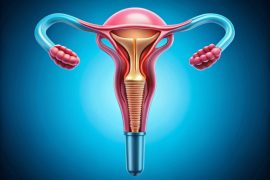Are you curious about how different contraceptive methods work and which might be the best for you? With so many options available, it can be confusing to decide. Whether you’re looking for something long-term, hormone-free, or easy to use, understanding the effectiveness and benefits of each method can help you make an informed choice. Let’s break down the various contraceptive methods, so you can find the one that fits your lifestyle and needs.
Hormonal Methods
- Birth Control Pills
Birth control pills are one of the most widely used contraceptive methods. These pills contain hormones that prevent ovulation, making it impossible for an egg to be fertilized.
Effectiveness: When taken correctly, birth control pills are over 99% effective. However, their effectiveness drops to about 91% with typical use due to missed doses or incorrect use.
Pros:
- Regulates Menstrual Cycles: Birth control pills can often help in regulating irregular menstrual cycles, making periods more predictable.
- Reduces Acne: Hormonal regulation from the pill can reduce acne, providing a dual benefit for users.
2. Vaginal Ring
The vaginal ring is another hormonal contraceptive method that releases hormones steadily to prevent pregnancy.
Effectiveness: Similar to birth control pills, the vaginal ring is over 99% effective with perfect use and about 91% effective with typical use.
Pros:
- Monthly Application: The vaginal ring only needs to be changed once a month, offering a convenient alternative to daily pills.
Barrier Methods
- Condoms (Male and Female)
Condoms are barrier methods that physically prevent sperm from reaching the egg. They are available in both male and female versions.
Effectiveness: Male condoms are about 98% effective with perfect use and around 85% effective with typical use . Female condoms are slightly less effective, with a typical use effectiveness of around 79% .
Pros:
- STI Protection: Condoms are the only contraceptive methods that also provide protection against sexually transmitted infections (STIs).
- Easily Accessible: Condoms are widely available without a prescription.
2. Diaphragms and Cervical Caps
Diaphragms and cervical caps are barrier methods that cover the cervix to prevent sperm from entering the uterus.
Effectiveness: These methods are about 94% effective with perfect use and approximately 87% effective with typical use.
Pros: No Hormonal Side Effects: Since they do not involve hormones, diaphragms and cervical caps do not have the side effects associated with hormonal contraceptive methods.
Long-Acting Reversible Contraceptives (LARCs)
- Intrauterine Devices (IUDs)
IUDs are small devices inserted into the uterus to prevent pregnancy. There are hormonal and non-hormonal (copper) IUDs.
Effectiveness: IUDs are over 99% effective and can last between 3 to 10 years, depending on the type.
Pros:
- Long-Term Protection: Once inserted, IUDs provide long-term protection without the need for daily or monthly attention.
- Implants
Contraceptive implants are small rods placed under the skin that release hormones to prevent pregnancy.
Effectiveness: Implants are over 99% effective and can last up to 3 years.
Pros:
- Long-Term Protection: Similar to IUDs, implants offer long-term protection, making them a set-and-forget option.
Permanent Methods
- Sterilization (Tubal Ligation, Vasectomy)
Sterilization is a permanent contraceptive method suitable for individuals who do not wish to have more children.
Effectiveness: Both tubal ligation (for women) and vasectomy (for men) are over 99% effective.
Pros:
- Permanent Solution: Sterilization provides a permanent solution to contraception, eliminating the need for other methods.
Conclusion
Choosing the right contraceptive method is a personal decision that depends on various factors, including lifestyle, health, and family planning goals. Understanding the effectiveness and pros of each contraceptive method can help individuals make informed choices that best suit their needs. It’s always recommended to consult with a healthcare provider to discuss options and find the most suitable method for your lifestyle and health.
Reference Links:
1. https://my.clevelandclinic.org/health/treatments/3977-birth-control-the-pill
3. https://www.plannedparenthood.org/learn/birth-control/condom/how-effective-are-condoms
5. https://my.clevelandclinic.org/health/articles/23427-vaginal-diaphragm
https://my.clevelandclinic.org/health/articles/24157-vaginal-ring





Comments are closed.